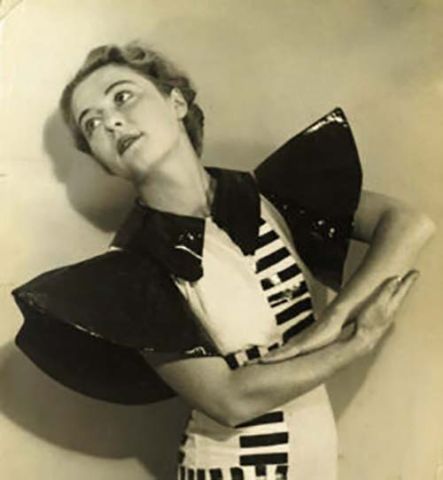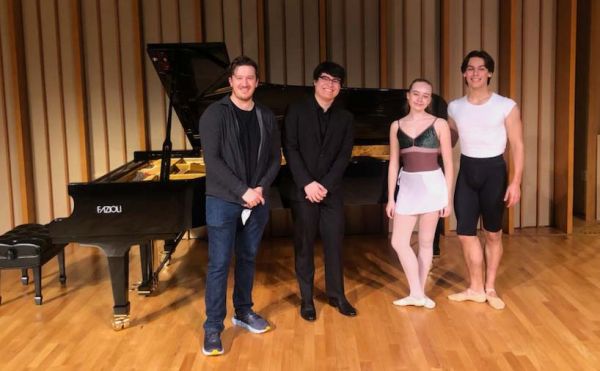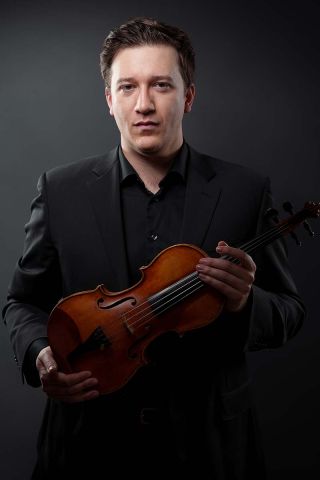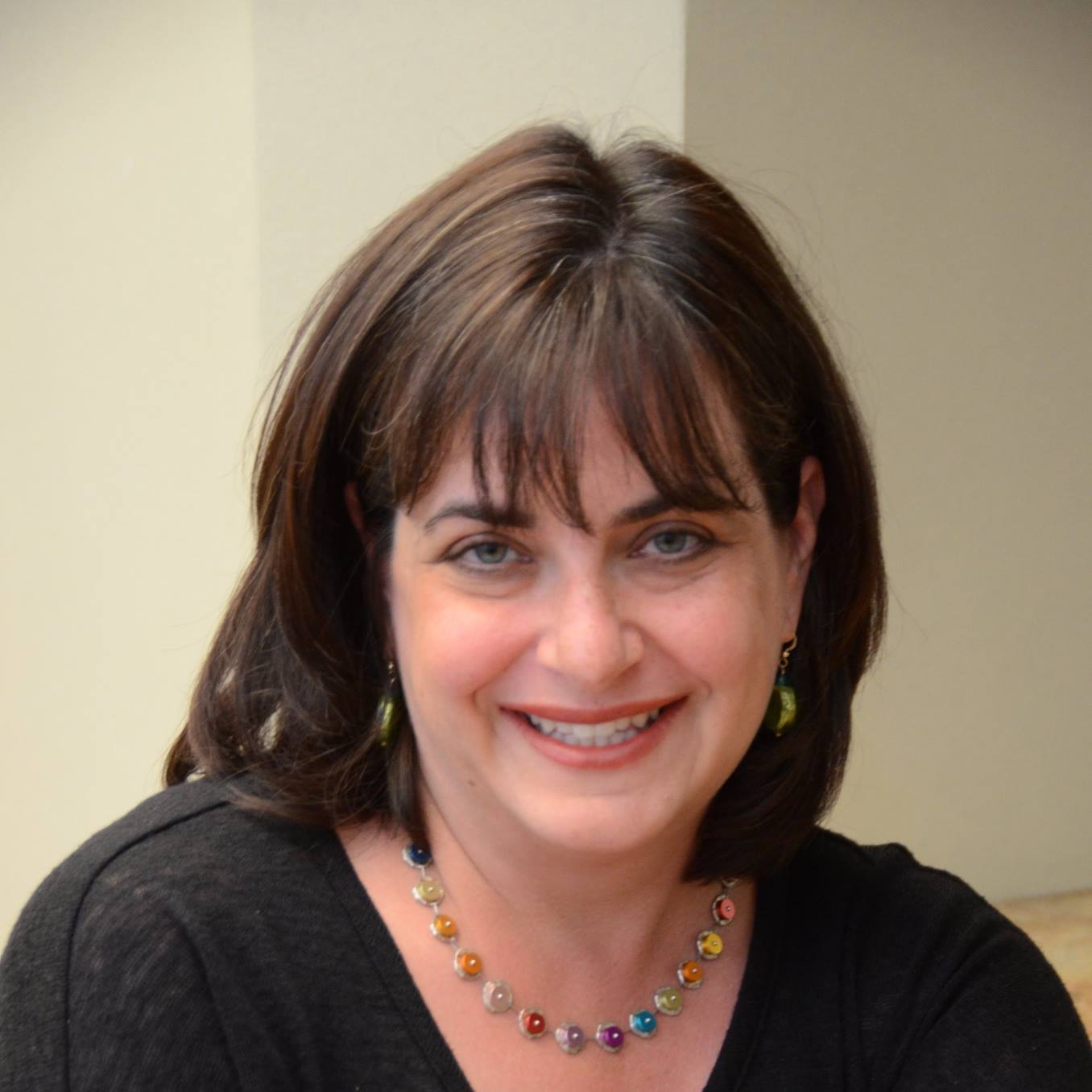A New Generation Embraces Music the Nazis Tried to Stifle
Alexa Dollar flings open her arms and spins across the stage, relishing the moment as if she’s just arrived at a party thrown in her honor. She kicks out her leg and flutters back across the floor, chasing the piano’s tantalizing lilt.
Drew Lybolt comes next, taking over the stage with powerful leaps and commanding twirls set to an insistent, almost argumentative, piano vignette.

Alexa and Drew’s performances, with Colburn Conservatory student Samuel Glicklich accompanying on piano, are being recorded for Concerts from the Library of Congress, a nearly 100-year-old series that performs and archives a diverse list of musical styles. The show, which premiered May 23 and is available online, features Colburn students performing the Zipper suite along with pieces by three other composers whose lives and work were also interrupted by the Nazi regime. Produced by The Ziering-Conlon Recovered Voices Initiative at the Colburn School, the concert is part of an effort to restore to the studio, stage, and canon of music the works of musicians and composers suppressed and oppressed by the Nazis.

“Words like initiative and project are insufficient – it really is a mission,” said James Conlon, music director of the LA Opera and artistic director of The Recovered Voices Initiative. “These are composers whose music we would know and hear with some regularity in concert halls, or in recordings, or on YouTube, because they would have been played through the years without interruption. But they were stifled by the Nazi regime, and they lost their place in the world. They didn’t have the same kind of students, the same following of the next generation to emulate their ways, to honor them and remember them.”
Conlon discovered and began researching these composers during the 1990s, when he was conducting primarily in Europe. In 2006, back in the United States, he and NYU professor Michael Beckerman founded the Orel Foundation to research, catalog and disseminate information about more than 20 composers, some of whom were murdered by the Nazis and others who managed to flee and survive. In 2007 Conlon staged the first “Recovered Voices” production for the LA Opera, and in the last few years, the academic and performance efforts have coalesced under the Ziering-Conlon Recovered Voices Initiative at the Colburn School, leading to a more robust offering of scholarly and musical opportunities.
Over the last two years, those offerings have grown even more. The COVID-19 pandemic pushed Colburn to produce high quality online material. At the same time, Colburn graduate student Adam Millstein – whom Conlon calls a kindred “missionary soul” – took on the day-to-day leadership of Recovered Voices.
Millstein, an accomplished violinist, played an integral role in the production of several concert series, lectures and recordings, in partnership with Conlon, the artistic director of the project, and Robert Elias, the former director. Millstein has played many recitals himself – including the Library of Congress concert – and drawn many more students and performers into the effort.

Millstein was initially drawn to Recovered Voices when he was invited to play at a special event Conlon was hosting at the Thomas Mann House – a villa in Pacific Palisades where artists and intellectuals exiled by the Nazis gathered in the 1930s and 40s.
“This music, in that setting, created a direct, living, breathing link to history,” Millstein said. “It provided this bridge that connected me to these composers, and to that time.”
When COVID lockdowns forced Millstein out of the recital hall a few months after the concert at the Thomas Mann House, he dove into the website of the Orel Foundation, researching composers, reading biographies and articles, and listening to hours and hours of music. He was stunned that he had never heard these complex and compelling compositions, which he felt had artistic value and innovative foresight on a par with music by well-known composers such as Shostakovich or Stravinsky or Prokofiev.
“To know what could have been with these composers makes me so upset, on a personal and an artistic level,” said Millstein, who is Jewish. “My study of this work has made the reality of what ended up happening even more vivid, and more visceral.”
Millstein’s involvement with recovered voices and his ongoing research eventually led him to the archives of Herbert and Trudl Zipper, which had been entrusted to the Colburn School in 2019.
Amid the Zipper archive’s well-kept 400 boxes, Millstein found black and whites of Trudl posed in over-the-top modernist costumes and balanced in ligament-defying poses. He found swastika stamped documents and old concert programs. And then he came across sheet music for “2 Dances for Trudl.”
Millstein saw in the sheet music an opportunity to revive a beautiful piece of music that hadn’t been performed since the 1930s, while connecting students to a pivotal figure in the school’s history.
Herbert, a Vienna-born conductor, was project director of the Community School of Performing Arts at USC in the 1970s. Zipper convinced his longtime friend and fellow public arts enthusiast Richard Colburn to fund the school's independence from USC, a deal Zipper helped steer to completion in 1980. Zipper, who stayed active in the school, is credited as a founding advisor to what later became The Colburn School.
In his dive into the Zippers’ legacy, Millstein watched Herbert’s testimony for USC Shoah Foundation’s Visual History Archive, which Zipper recorded in 1995, two years before he died. (Watch Zipper’s full testimony or read more about Zipper’s journey from Vienna to Manila to Chicago to Los Angeles.)
Zipper, born in Vienna in 1904, studied under Richard Strauss and Maurice Ravel at the State Academy of Music and the Performing Arts in Vienna. He became politically active after working as a conductor in Germany during Hitler’s rise to power in the early 1930s. Soon after the Nazis annexed Austria in March of 1938, Zipper was arrested in Vienna and deported to Dachau, one of the first concentration camps created by the Nazis. In Dachau, Zipper and other musicians fashioned instruments out of scrap material and held secret concerts in the latrines. He co-composed “Dachau Song,” which, as the horror of World War II unfolded, made its way across Europe as a satirical anthem of resistance. In September 1938, Zipper was transferred to Buchenwald. He spent a short but grueling time there, until his family was able to secure his release and he fled to Paris.
Herbert had fallen in love with Trudl Dubsky in 1929, when she was a young teen, after spotting her at a dance in Vienna. She became a member of the Austrian Free Dance Movement and fled to the Philippines in 1937 to escape Nazi artistic suppression and antisemitism. After his release from Buchenwald, Herbert followed Trudl to Manila and the two were married there in October 1939. She danced and he conducted the Manila Symphony Orchestra, but he was again imprisoned, this time by the Japanese after they invaded the Philippines, accused of spying for the United States. Herbert and Trudl moved to the United States in 1946. First in Brooklyn, then in Chicago, and finally in Los Angeles, Trudl danced and Herbert conducted and taught and became a fierce advocate for public arts education. Trudl died of lung cancer in 1976.
Several spaces and programs at the Colburn school are named for the Zippers, including Zipper Hall, where Sam Glicklich, a fourth year college student at the Colburn Conservatory, is playing “2 Dances for Trudl,” as Alexa and Drew dance and Millstein offers encouragement over a microphone from the control room.
“I feel honored to play this music,” said Glicklich, “not only because it is such a powerful, beautiful piece, but because I can feel the history of it.”
In his 1995 testimony, Zipper himself talked about the power of music to express unique emotions, as he saw when he recited poetry and played concerts in Dachau.
“Suddenly, [the prisoners] heard some human words, some human expression of excellence,” he said. "The greatest musical expressions are communications with one's self. This cannot be replaced by anything else.”
Read more about Herbert Zipper’s life in With Music and Poetry, Herbert Zipper Reached for Humanity in Dachau.
Watch Herbert Zipper’s full testimony in the Visual History Archive.
Watch the Library of Congress Concert featuring the Conlon-Ziering Recovered Voices Initiative.
